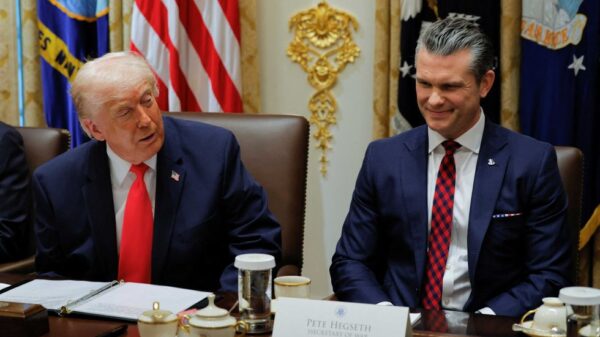Prominent entrepreneur and real estate investor Grant Cardone has ignited discussions regarding taxation in the United States. Following the signing of the One Big Beautiful Bill Act (OBBBA) into law, Cardone made headlines with his assertion that “the most patriotic thing you can do is not pay the IRS a penny.” His comments reflect a broader criticism of federal taxation and the role of the Internal Revenue Service (IRS) in American life.
Cardone’s remarks resonate with a segment of the population that shares his skepticism towards government intervention in personal finance. He contends that the United States experienced its greatest prosperity prior to the establishment of the IRS, claiming that paying taxes does not equate to patriotism. This perspective aligns with a libertarian viewpoint that advocates for minimal government involvement in individual economic activities.
New Tax Savings Under OBBBA
The passage of the OBBBA under Donald Trump’s administration means significant tax savings for many Americans. The updated legislation introduces several key changes, which could allow taxpayers to retain more of their earnings. Notably, the bill includes a flat $6,000 tax deduction for seniors, in addition to the standard deduction that ranges from $15,000 to $30,000 until 2029.
The Child Tax Credit will also see an increase from $2,000 to $2,200, becoming a permanent feature of the tax landscape. For business owners, the eligibility criteria for the Qualified Business Income Deduction have changed, introducing a minimum deduction of $400 for those generating at least $1,000 in income from their businesses.
Moreover, employees in sectors reliant on tips can now deduct up to $25,000 for qualified tips, while overtime workers may benefit from a $25,000 deduction, or $12,500 for individuals. The legislation also establishes “Trump Accounts,” traditional IRA accounts for children born after January 1, 2025, funded initially by the government with $1,000.
These measures indicate that the current administration is taking steps to reduce the tax burden for many, seemingly mirroring some of Cardone’s beliefs regarding financial empowerment and wealth retention.
Contextualizing the Tax Debate
Cardone’s comments tap into ongoing debates surrounding taxation and its impact on society. His assertion that the U.S. was most prosperous before the IRS references a time before the ratification of the 16th Amendment in 1913, which established the federal income tax. Critics of high taxation, including Cardone, argue that excessive tax burdens stifle innovation and personal growth, while proponents of taxation highlight the essential role tax revenue plays in funding infrastructure and social programs.
As economic uncertainty looms and tax policies become political battlegrounds, Cardone’s views resonate with those feeling frustrated by government inefficiency and questioning the effectiveness of federal expenditures. His outspoken stance embodies a philosophy that challenges conventional wisdom, advocates for financial independence, and promotes questioning authority.
Whether one supports or opposes Cardone’s views, his influence on public discourse about taxation and government remains significant. His perspective encourages individuals to think critically about their financial choices and the implications of government policies on personal wealth.
As discussions on taxation continue, the introduction of new tax savings through the OBBBA may shift the landscape for many Americans, sparking even more dialogue about the role of government in personal finance.







































































